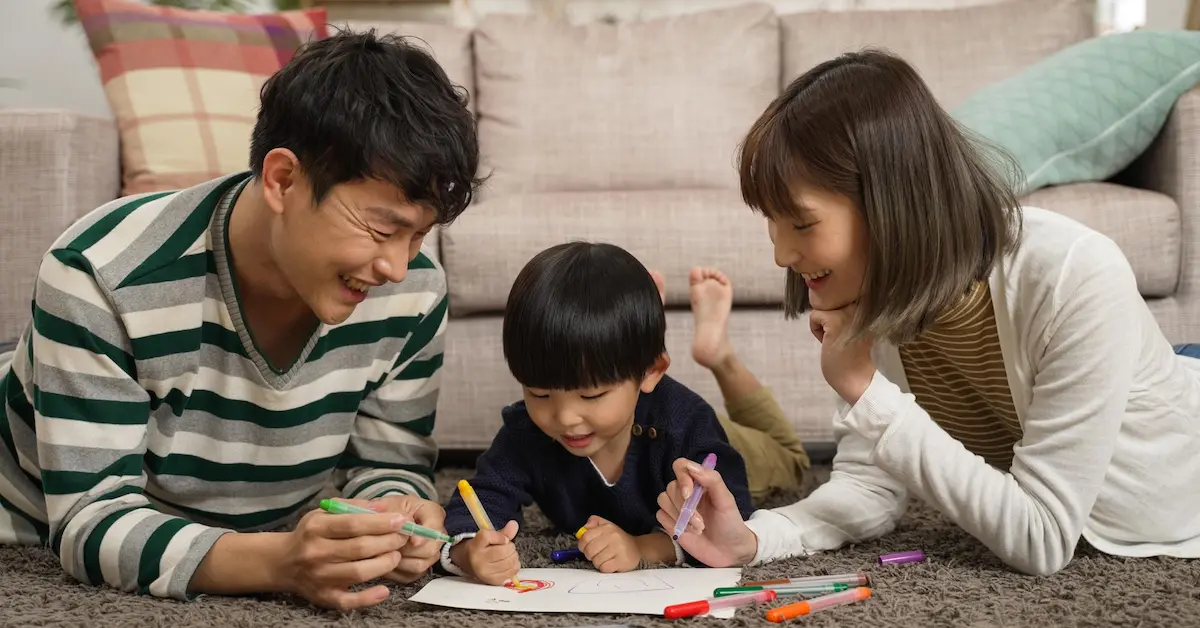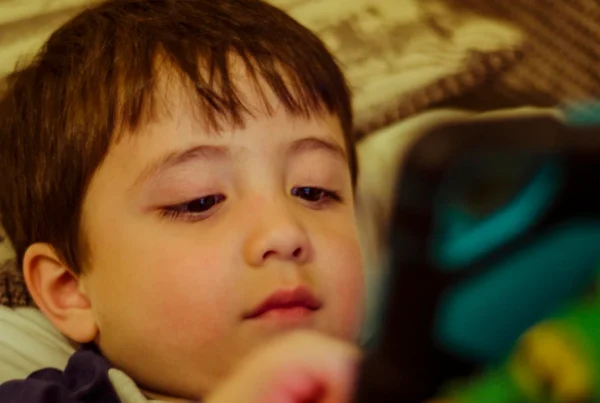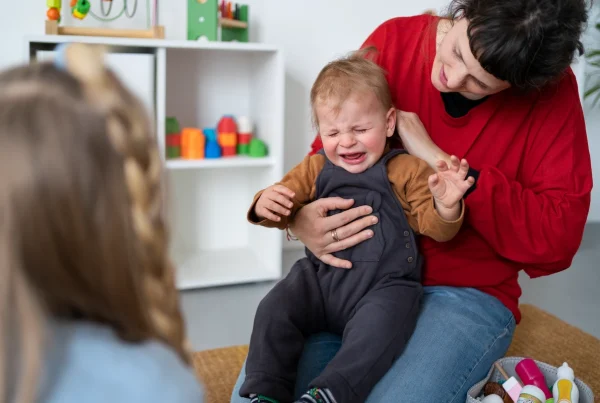Every parent knows the scene: a child melting down in the middle of the grocery store, bursting into tears when a toy breaks, or refusing to share with a sibling. These moments are windows into a child’s ability to manage big feelings.
This ability, known as self-regulation, is one of the most important life skills a child can learn. It influences not only their emotional well-being but also their social relationships and academic success.
Read also: Responsive and Gentle Parenting: A Christian Guide to Raising Emotionally Healthy Kids
Across Sekolah Pelita Harapan (SPH) campuses, we see self-regulation as a psychological concept and also a spiritual practice. The Bible speaks often about self-control as a fruit of the Spirit (Galatians 5:22–23), reminding us that learning to manage emotions and actions is a lifelong journey rooted in God’s guidance.
For children, developing self-regulation doesn’t happen overnight, and for parents, teaching it can feel challenging. But with consistent practice and faith-filled guidance, children can grow in patience, resilience, and wisdom.
What is Self-Regulation in Children and Why Does It Matter?
Self-regulation is the ability to understand and manage emotions, behaviors, and impulses in healthy ways.
For children, this means learning how to calm down after feeling upset, wait their turn, follow instructions, or keep trying even when tasks are difficult.
Research shows that strong self-regulation skills are linked to better academic outcomes, positive social interactions, and long-term emotional health.
On the other hand, struggles with self-regulation can lead to difficulties in the classroom, frustration in friendships, and conflicts at home.
Parents often find this one of the hardest areas to guide their children in because it requires patience and repetition.
Still, it is also one of the most rewarding. Helping children develop self-regulation equips them with tools for life. Not just for school, but for every setting where emotions run high and challenges arise.
So, At What Age a Child Should Begin to Self-Regulate?
The journey of self-regulation in children starts early, even in the early years of life.
Babies show small signs of calming themselves, but stronger self-regulation skills usually grow between ages 3 and 5 as children develop self-regulation through play, daily routines, and caring guidance.
By the time children reach primary school, many can begin to self-regulate their emotions, follow instructions, and use simple coping strategies, although every child grows at a different pace.
Healthy development of these skills supports academic success, positive relationships, and better mental health as children mature.
What Are Signs of Poor Self-Regulation Skills in Children?
Many parents wonder how to spot when children develop self-regulation challenges. Below are common signs that a child may struggle with the self-regulation skills needed for healthy emotions, learning, and daily life.
1. Frequent Emotional Outbursts
Children who often cry, yell, or show intense frustration may have weak emotional self-regulation. They can feel overwhelmed by strong emotions and find it hard to calm or manage their feelings when routines change or conflicts arise.
2. Difficulty Following Routines and Instructions
A child who resists bedtime, forgets classroom directions, or loses focus easily may be struggling with cognitive self-regulation and related executive function skills. This affects their ability to stay organized and impacts early learning and later academic success.
3. Impulsive or Risky Behaviour
Grabbing toys from other children, interrupting conversations, or running off without thinking can signal poor behavioural self-regulation and limited inhibitory control. Such actions show that the child finds it hard to pause and self-regulate before acting.
4. Trouble Forming Positive Relationships
Children who can’t manage their emotions or respond calmly during play may struggle to build positive relationships. They might argue often, have few friends, or feel left out at primary school, all linked to weak self-regulation.
5. Low Persistence with Learning Tasks
Giving up quickly on puzzles, reading, or class projects may reveal gaps in self-regulation important for academic achievement. Difficulty staying with a challenge shows that the child’s ability to focus and use coping strategies needs development.
 5 Easy Self-Regulation Strategies Parents Can Try at Home
5 Easy Self-Regulation Strategies Parents Can Try at Home
Teaching self-regulation does not need complicated systems. With small and steady actions, parents can help children build self-regulation skills that support learning, mental health, and academic success throughout development.
1. Model Self-Regulation Yourself
Children learn best by watching their parents. When you stay calm, use gentle words, or pause before you respond to stress, children notice and copy.
Saying, “I am feeling upset, so I will take a deep breath before I answer,” gives a clear example of healthy self-regulation strategies and shows how to manage strong emotions.
These moments help children develop self-regulation as they watch how you self-regulate every day.
2. Teach Emotional Vocabulary
Children cannot control what they cannot name. Helping them talk about feelings such as happy, sad, or frustrated builds emotional self-regulation and strengthens self-regulation skills.
Read picture books about emotions, use a simple chart, or ask, “How are you feeling now?” to encourage open response and positive relationships.
As Proverbs 18:21 reminds us, “The tongue has the power of life and death.” Giving children the right words empowers them to speak life into their experiences and lays a strong base for academic success and social growth.
3. Create a Calm-Down Space
A quiet corner with cushions or coloring tools lets a child step aside to self-regulate and return when ready.
This supports cognitive self-regulation and teaches that taking a short break is a healthy way to manage stress. Over time, a child’s ability to focus and regain control grows, helping children develop self-regulation in everyday situations.
This practice mirrors Psalm 46:10: “Be still, and know that I am God.” Learning to pause is one of the most effective self-regulation strategies and helps children anchor themselves.
4. Practice Waiting and Patience
Games that involve turns, baking while waiting for cookies, or short “waiting games” help children build inhibitory control, working memory, and executive function skills.
These playful moments strengthen behavioural self-regulation and prepare them for primary school tasks that require attention, delayed reward, and the ability to problem solve.
James 5:7 encourages believers to “be patient… like a farmer waiting for the land to yield its crop.” Likewise, children who practice patience understand that waiting can lead to good outcomes and long-term academic success.
5. Use Prayer and Scripture for Comfort
In moments of frustration or sadness, parents can gently guide children toward prayer. Encouraging them to talk to God about their feelings helps them see that they are never alone in their struggles.
Reciting comforting verses like Philippians 4:6–7, “Do not be anxious about anything, but in every situation, by prayer and petition, with thanksgiving, present your requests to God,” can provide peace.
Within our Christ-centered learning community, these spiritual practices remind children that their emotions matter to God and that His Word offers strength for every circumstance.
Read also: Top 7 Emotional Regulation Activities for Teens to Foster Mental Well-Being
The Biblical Foundation of Self-Control
From a Christian perspective, self-regulation is closely tied to the biblical virtue of self-control.
In Galatians 5:22–23, self-control is listed among the fruits of the Spirit, alongside love, joy, peace, patience, kindness, goodness, faithfulness, and gentleness.
This shows that developing strong self-regulation skills is not only about managing behavior but also about spiritual growth guided by the Holy Spirit.
The Bible also speaks about patience and endurance in trials (James 1:19: “Everyone should be quick to listen, slow to speak and slow to become angry”).
When children learn to pause, reflect, and respond thoughtfully, they strengthen both emotional self-regulation and the ability to solve problems in positive ways.
Parents who model these individual skills help children practice godly habits, while reminding them that true strength ultimately comes from God.
Turning to God in the Journey
Even with consistent strategies to teach self-regulation skills, parents will discover that this growth takes time.
Self-regulation begins in the heart and continues as children work through daily challenges, sometimes alongside other children or siblings, and even into the teen years as older children face new pressures.
There will be setbacks, and children will need guidance to manage strong emotions and build working memory for better focus and decision-making.
This is where turning to God is essential not only for children but for parents themselves. Parenting is a calling that stretches patience and self-control.
Seeking God’s wisdom through prayer and Scripture provides the strength needed for the journey.
As parents nurture self-regulation skills at home, they also plant seeds of spiritual growth that can lead to long-term outcomes such as resilience, healthy relationships, and even higher self-worth.
By pointing children to God as their source of peace and strength, families prepare them for challenges far beyond early childhood and set a foundation that supports lifelong faith and growth.
Read also: School Life Hacks: 7 Effective Self-Management Skills for Students
Conclusion
Self-regulation is one of the most valuable skills a child can develop, shaping academic performance, relationships, and lifelong resilience.
For parents, helping children grow in this area may feel challenging, yet it is deeply rewarding and rooted in both practical wisdom and biblical truth.
At Sekolah Pelita Harapan (SPH), this growth is nurtured through the close guidance of dedicated teachers who actively model and mentor these skills, helping students strengthen and develop them further within our Christ-centered learning environment and world-class programs like the International Baccalaureate (IB) and Cambridge International curriculum.
These learning frameworks encourage inquiry, critical thinking, and balanced development, providing daily opportunities for students to practice self-management and emotional regulation as they explore challenging subjects and collaborate with peers.
As children learn to regulate their emotions and choices within these programs, they also embody the fruit of the Spirit, such as self-control, patience, and peace, the qualities that prepare them not only for academic success but also for a lifetime of faithful character and purpose.
To discover how SPH can support your child’s growth, contact us today to learn more about our International Baccalaureate and Cambridge International pathways!









